- Plenary Session 2
-
- Pierre Mounier,
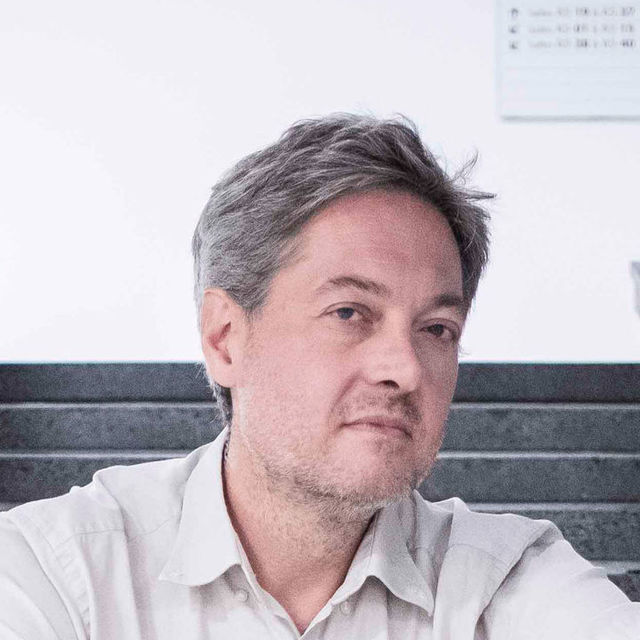 , Co-coordinator of OPERAS Research Infrastructure, OPERAS, Pierre Mounier is co-coordinator of OPERAS Research Infrastructure with Suzanne Dumouchel. He supports cooperation between OPERAS members and contributes to the strategic roadmap of the infrastructure. He is trained in classical studies and social anthropology. Pierre is affiliated to the École des Hautes Études en Sciences Sociales (EHESS); head of the international sector of OpenEdition, the French national infrastructure dedicated to open scholarly communication in the SSH, and co-director of the Directory of Open Access Books (DOAB) with Niels Stern. He regularly publishes on digital humanities and open science topics, and more largely on the social and political impact of Information and Communication Technology (ICT)
, Co-coordinator of OPERAS Research Infrastructure, OPERAS, Pierre Mounier is co-coordinator of OPERAS Research Infrastructure with Suzanne Dumouchel. He supports cooperation between OPERAS members and contributes to the strategic roadmap of the infrastructure. He is trained in classical studies and social anthropology. Pierre is affiliated to the École des Hautes Études en Sciences Sociales (EHESS); head of the international sector of OpenEdition, the French national infrastructure dedicated to open scholarly communication in the SSH, and co-director of the Directory of Open Access Books (DOAB) with Niels Stern. He regularly publishes on digital humanities and open science topics, and more largely on the social and political impact of Information and Communication Technology (ICT)
- 2025-09-15 16:45
- 16:45
- Room:
81/R-003A - Science Gateway Auditorium A
-
- Alex Kohls, Head of the CERN Scientific Information Service,
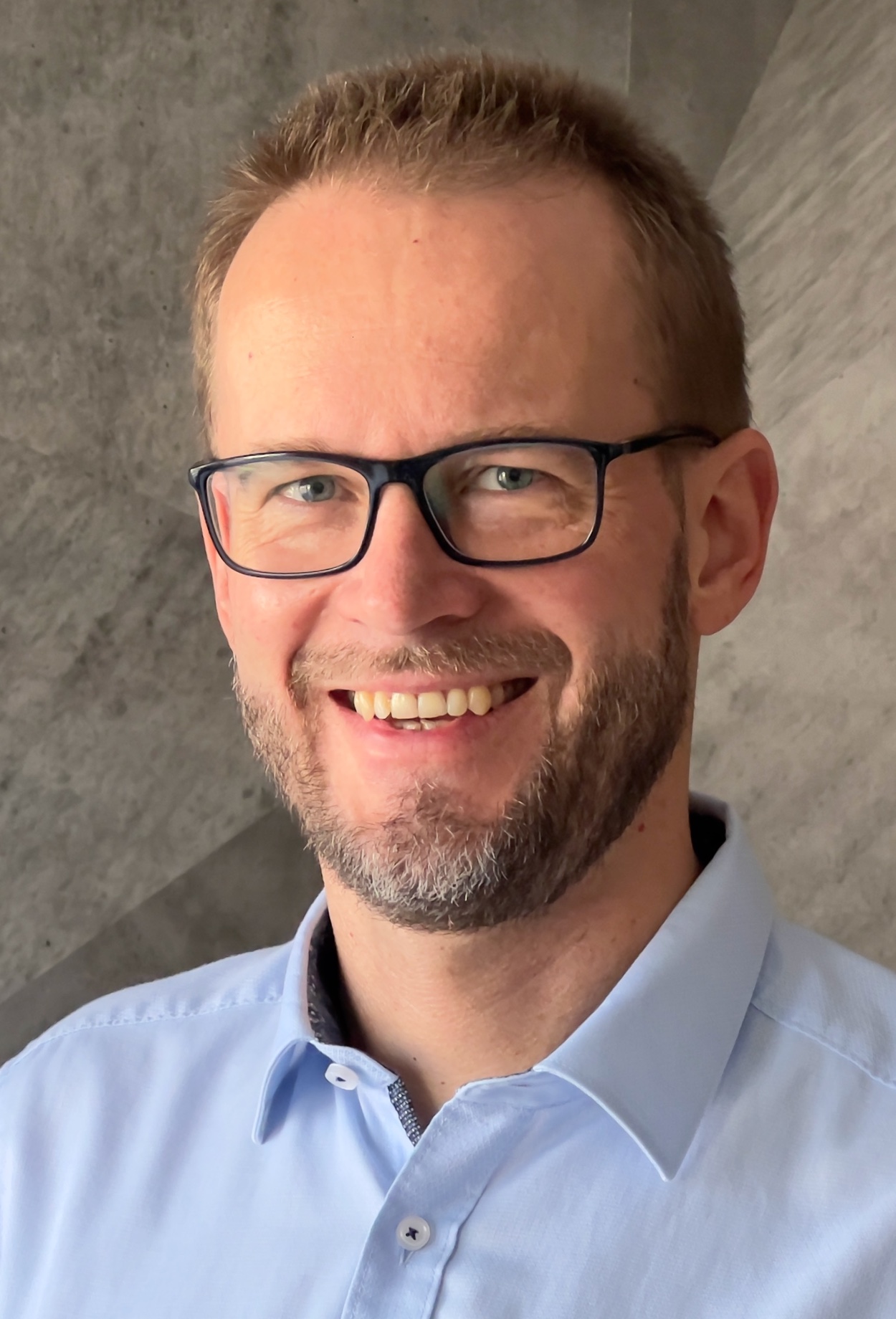 , Alexander Kohls is the head of the CERN Scientific Information Service. In this role, he spearheads numerous organisational efforts in open science and scholarly communication, alongside overseeing the CERN Library and Archives. Previously an executive in the financial sector, he now promotes global initiatives like SCOAP3, advocating for open access to scientific research and encouraging international collaboration. Alex holds a degree in business administration and joined CERN in 2014. , European Organization for Nuclear Research (CERN), https://home.cern/, Switzerland
, Alexander Kohls is the head of the CERN Scientific Information Service. In this role, he spearheads numerous organisational efforts in open science and scholarly communication, alongside overseeing the CERN Library and Archives. Previously an executive in the financial sector, he now promotes global initiatives like SCOAP3, advocating for open access to scientific research and encouraging international collaboration. Alex holds a degree in business administration and joined CERN in 2014. , European Organization for Nuclear Research (CERN), https://home.cern/, Switzerland - Juan Pablo Alperin, Scientific Director, Public Knowledge Project,
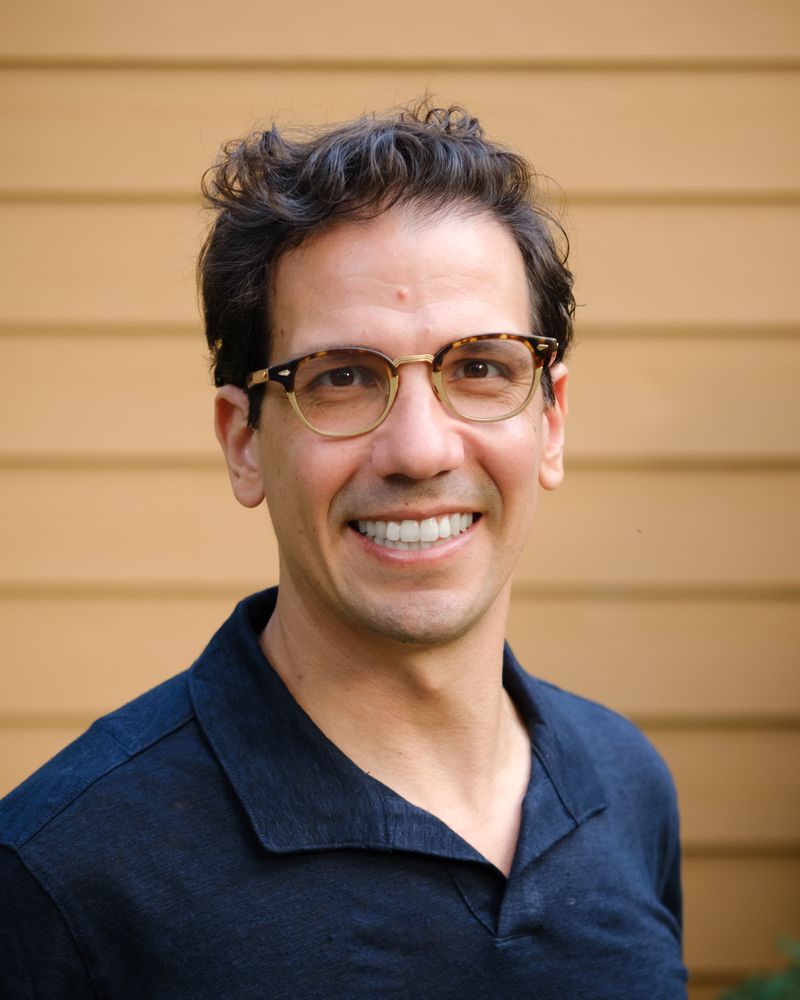 , Juan Pablo Alperin is the Scientific Director of the Public Knowledge Project (PKP), Associate Professor in the Publishing Program, and the Co-Director of the Scholarly Communications Lab (ScholCommLab) at Simon Fraser University. Dr. Alperin is an established researcher of scholarly communications, known for bringing evidence-based perspectives to pragmatic solutions in support of open access and open science. , Public Knowledge Project, Simon Fraser University, https://pkp.sfu.ca/
, Juan Pablo Alperin is the Scientific Director of the Public Knowledge Project (PKP), Associate Professor in the Publishing Program, and the Co-Director of the Scholarly Communications Lab (ScholCommLab) at Simon Fraser University. Dr. Alperin is an established researcher of scholarly communications, known for bringing evidence-based perspectives to pragmatic solutions in support of open access and open science. , Public Knowledge Project, Simon Fraser University, https://pkp.sfu.ca/ - Katharina Rieck, Open Science Manager at the Austrian Science Fund (FWF),
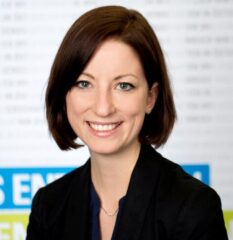 , Katharina Rieck works as Open Science Manager at the Austrian Science Fund (FWF). In this role, she is responsible for the strategic development and implementation of the FWF's Open Science agenda. She coordinates funding programs to support open access publications and infrastructures and is responsible for the FWF's research data management strategy. She represents the FWF in several national and international bodies such as Science Europe Working Groups, Crossref Board of Directors, CoARA and the Steering Board of Open Science Austria (OSA). , Austrian Science Fund (FWF), https://www.fwf.ac.at/en/, Austria
, Katharina Rieck works as Open Science Manager at the Austrian Science Fund (FWF). In this role, she is responsible for the strategic development and implementation of the FWF's Open Science agenda. She coordinates funding programs to support open access publications and infrastructures and is responsible for the FWF's research data management strategy. She represents the FWF in several national and international bodies such as Science Europe Working Groups, Crossref Board of Directors, CoARA and the Steering Board of Open Science Austria (OSA). , Austrian Science Fund (FWF), https://www.fwf.ac.at/en/, Austria - Victoria Tsoukala, Policy Officer in the European Commission,
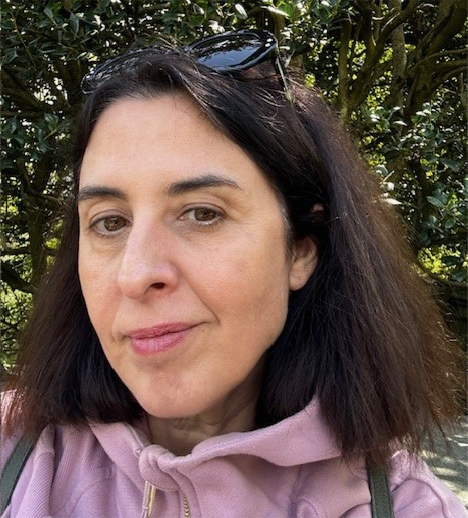 , Victoria Tsoukala is a Policy Officer in the European Commission, Directorate General for Research & Innovation. She works on the development, implementation, monitoring and evaluation of policies in open science and scholarly communication, and especially on R&I FP policy and policy development with Member States of the EU. She holds a PhD in Classical and Near Eastern Archaeology from Bryn Mawr College (PA, USA). , European Commission, https://commission.europa.eu/index_en
, Victoria Tsoukala is a Policy Officer in the European Commission, Directorate General for Research & Innovation. She works on the development, implementation, monitoring and evaluation of policies in open science and scholarly communication, and especially on R&I FP policy and policy development with Member States of the EU. She holds a PhD in Classical and Near Eastern Archaeology from Bryn Mawr College (PA, USA). , European Commission, https://commission.europa.eu/index_en
Advancing Equitable Publishing in Europe: The Case of Open Research Europe
How can we advance equitable publishing in Europe? This panel looks at Open Research Europe (ORE) as a model for community-supported, open access publishing, set against the backdrop of EU policy and the push for Diamond Open Access. The dialogue will investigate the potential of the ORE platform along with the roles, motivations, perspectives and expectations of organisations that participate in this initiative.
-
- Natalia Manola,
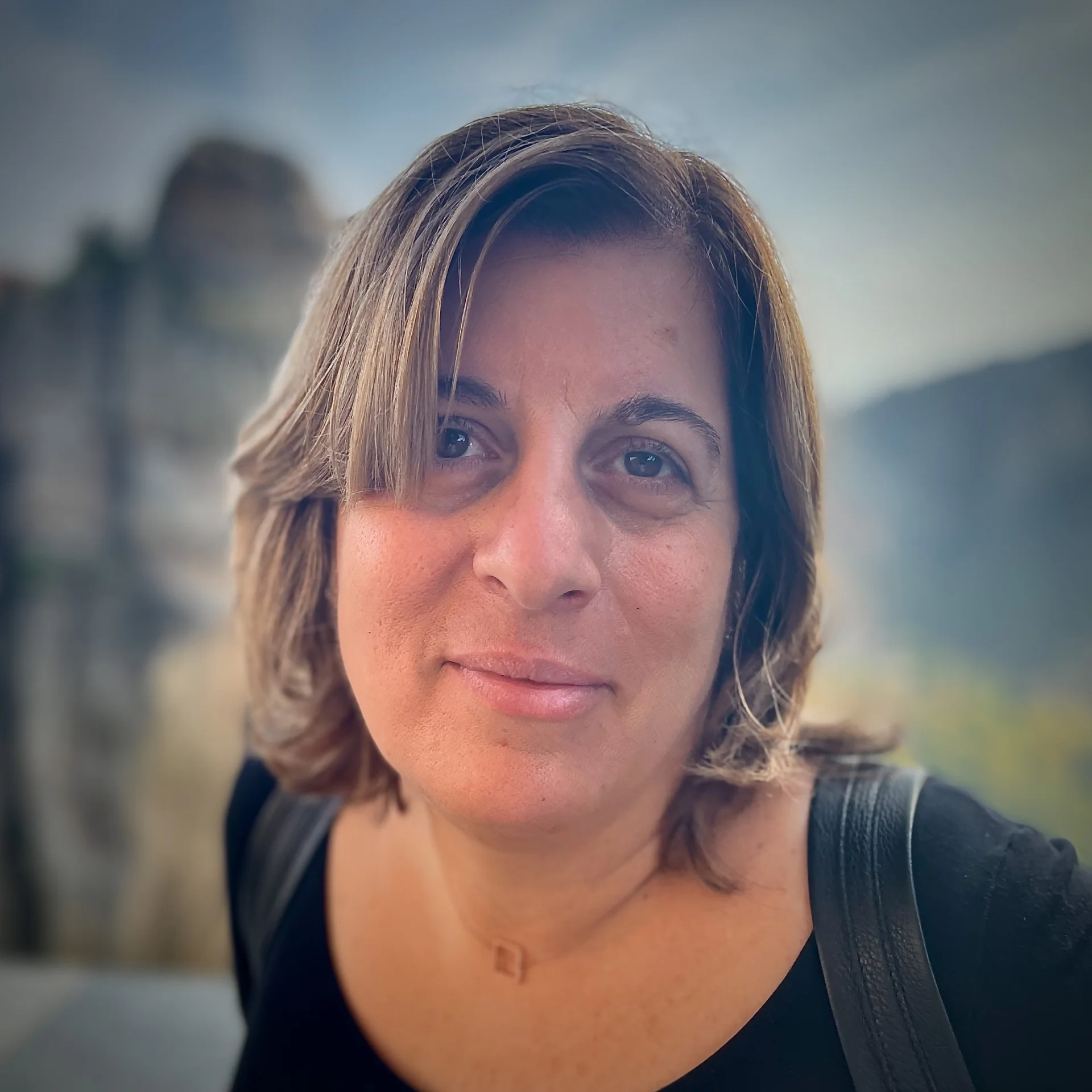 , CEO, OpenAIRE, https://www.openaire.eu/, Natalia holds a Physics degree from the University of Athens, and an MS in Electrical and Computing Engineering from the University of Wisconsin at Madison and has worked for several years as a Software Engineer and Architect in the Bioinformatics commercial sector. She has expertise in Open Science policies and implementation, having served in the EOSC Executive Board 2019-20, and in the Open Science Policy Platform (2016-17), an EC High Level Advisory Group provide advice about the development and implementation of open science policy in Europe.
, CEO, OpenAIRE, https://www.openaire.eu/, Natalia holds a Physics degree from the University of Athens, and an MS in Electrical and Computing Engineering from the University of Wisconsin at Madison and has worked for several years as a Software Engineer and Architect in the Bioinformatics commercial sector. She has expertise in Open Science policies and implementation, having served in the EOSC Executive Board 2019-20, and in the Open Science Policy Platform (2016-17), an EC High Level Advisory Group provide advice about the development and implementation of open science policy in Europe.
- 2025-09-17 09:00
- 09:00
- Room:
81/R-003A - Science Gateway Auditorium A
-
- Gitanjali Yadav, Scientist at NIPGR, Visiting Lecturer at the University of Cambridge,
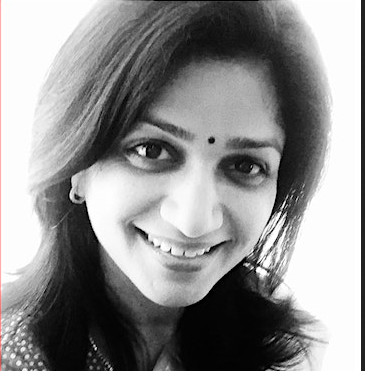 , Dr. Gitanjali Yadav is a Scientist at NIPGR and the cofounder of #semanticClimate, as well as a visiting Lecturer at the University of Cambridge. An expert in Genomics and Machine Intelligence, she works in the areas of Food security and Conservation. She has a diverse educational background with a Ph.D. in Immunology, a Master's degree in Biomedicine and a Graduate degree in Botany. She has worked with the UKHSA to train public health officers in genomic surveillance for SARS-Cov2. Gita is a strong advocate of Open Access and co-chairs the International Data Policy Committee (IDPC) in CODATA in the International Science Union, as well as the CoARA-ERIP Working Group. She has received several awards in recognition of her work, including the Hamied Fellowship from the University of Cambridge, Exceptional Talent Award from the Royal Society of London, INSA Medal by the Indian Naional Science Academy, and the SASTRA Obaid Siddiqi Life Science Award. , National Institute for Plant Genome Research, https://nipgr.ac.in/
, Dr. Gitanjali Yadav is a Scientist at NIPGR and the cofounder of #semanticClimate, as well as a visiting Lecturer at the University of Cambridge. An expert in Genomics and Machine Intelligence, she works in the areas of Food security and Conservation. She has a diverse educational background with a Ph.D. in Immunology, a Master's degree in Biomedicine and a Graduate degree in Botany. She has worked with the UKHSA to train public health officers in genomic surveillance for SARS-Cov2. Gita is a strong advocate of Open Access and co-chairs the International Data Policy Committee (IDPC) in CODATA in the International Science Union, as well as the CoARA-ERIP Working Group. She has received several awards in recognition of her work, including the Hamied Fellowship from the University of Cambridge, Exceptional Talent Award from the Royal Society of London, INSA Medal by the Indian Naional Science Academy, and the SASTRA Obaid Siddiqi Life Science Award. , National Institute for Plant Genome Research, https://nipgr.ac.in/ - Hans de Jonge, Director of Open Science NL,
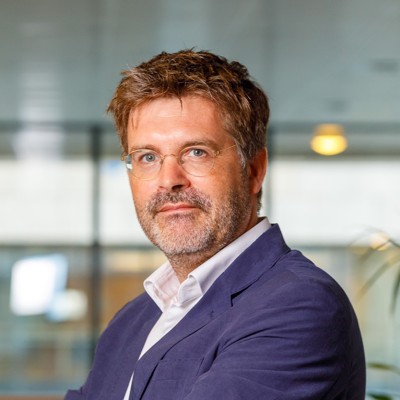 , Hans de Jonge (1975) is director of Open Science NL, part of the Dutch Research Council (NWO). Hans has worked at NWO overseeing its open science policies since 2018. This included NWO's open access and open data policies and implementation of initiatives to recognize and reward open science. Hans is the founding director of Open Science NL, which is the national initiative for open science in the Netherlands. With a budget of around 20m€ a year its mission is to accelerate the transition to open science in the Netherlands. Hans is member of the cOARA Steering Board, Board member of DOAJ and chairs the working group on funding data of the Barcelona Declaration on Open Research Information. Before working at NWO Hans worked at the academic affairs unit of Utrecht University and at the Dutch Association of Universities (UNL). Hans is a historian by training and specialised in the history of science. , Open Science NL, https://www.openscience.nl/
, Hans de Jonge (1975) is director of Open Science NL, part of the Dutch Research Council (NWO). Hans has worked at NWO overseeing its open science policies since 2018. This included NWO's open access and open data policies and implementation of initiatives to recognize and reward open science. Hans is the founding director of Open Science NL, which is the national initiative for open science in the Netherlands. With a budget of around 20m€ a year its mission is to accelerate the transition to open science in the Netherlands. Hans is member of the cOARA Steering Board, Board member of DOAJ and chairs the working group on funding data of the Barcelona Declaration on Open Research Information. Before working at NWO Hans worked at the academic affairs unit of Utrecht University and at the Dutch Association of Universities (UNL). Hans is a historian by training and specialised in the history of science. , Open Science NL, https://www.openscience.nl/ - Pastora Martínez Samper, Commissioner for international action at the Universitat Oberta de Catalunya (UOC),
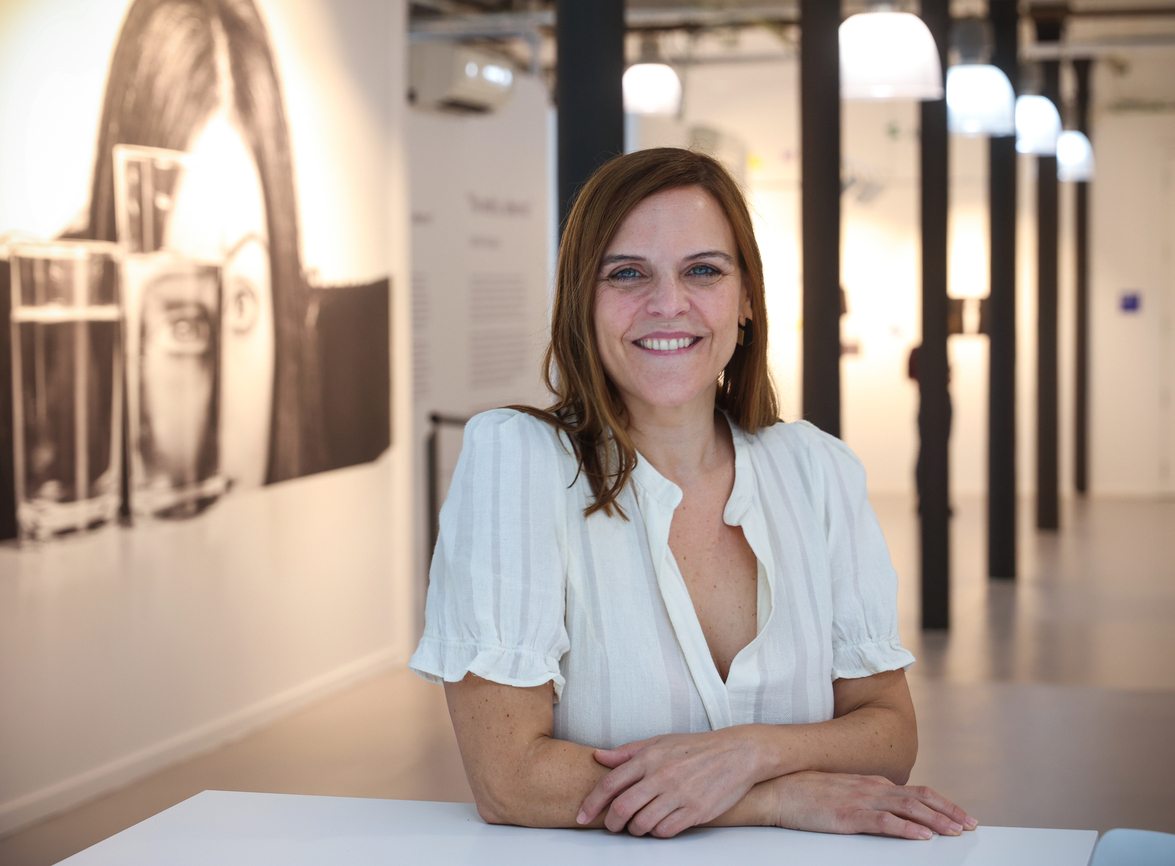 , Pastora Martínez Samper holds a PhD in Physics, a Master Leadership and Management of Science and an MBA and is currently commissioner for international action at the Universitat Oberta de Catalunya (UOC). She has expertise in Open Science and research assessment policies and implementation, serving as coordinator of the open knowledge and CoARA action plans at UOC, and as chair of EUA Expert Group on Open Science, CoARA Working Group on Academic Career Assessment, and Open science at the Catalan Consortium of University Services (CSUC). She is an Associate Professor at the School of Medicine of the Universitat de Barcelona. , Universitat Oberta de Catalunya, https://www.uoc.edu/en, Spain
, Pastora Martínez Samper holds a PhD in Physics, a Master Leadership and Management of Science and an MBA and is currently commissioner for international action at the Universitat Oberta de Catalunya (UOC). She has expertise in Open Science and research assessment policies and implementation, serving as coordinator of the open knowledge and CoARA action plans at UOC, and as chair of EUA Expert Group on Open Science, CoARA Working Group on Academic Career Assessment, and Open science at the Catalan Consortium of University Services (CSUC). She is an Associate Professor at the School of Medicine of the Universitat de Barcelona. , Universitat Oberta de Catalunya, https://www.uoc.edu/en, Spain
Reimagining Research Assessment: Open Science Values in Action
How can we build fairer, more inclusive research assessment systems? This panel explores how Open Science principles are reshaping Responsible Research Assessment, from narrative CVs to diverse outputs and responsible metrics. Join voices from CoARA, funders, researchers, and infrastructure providers as they share tools, lessons, and visions for future-ready reform.
- Plenary Session 1
-
- Bregt Saenen,
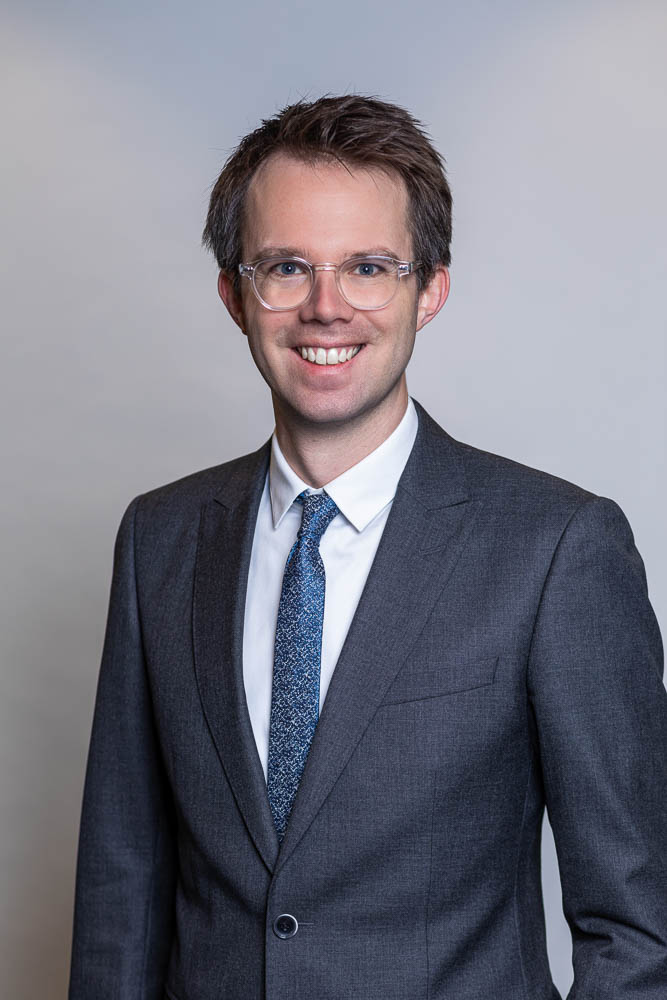 , Senior Policy Officer for Open Science, Science Europe, https://scienceeurope.org/, Dr. Bregt Saenen serves as Senior Policy Officer for Open Science at Science Europe. With extensive experience in membership and policy organisations, he has held roles at the European University Association, the European Commission (DG EMPL), SOLIDAR, and the EU Office of the International Labour Organization. Dr. Saenen earned his Doctorate in EU Studies and a Master of Science in EU Studies from Ghent University in Belgium, where he also completed a Bachelor and Master of Arts in History. Additionally, he was a Visiting Researcher at New York University in the United States.
, Senior Policy Officer for Open Science, Science Europe, https://scienceeurope.org/, Dr. Bregt Saenen serves as Senior Policy Officer for Open Science at Science Europe. With extensive experience in membership and policy organisations, he has held roles at the European University Association, the European Commission (DG EMPL), SOLIDAR, and the EU Office of the International Labour Organization. Dr. Saenen earned his Doctorate in EU Studies and a Master of Science in EU Studies from Ghent University in Belgium, where he also completed a Bachelor and Master of Arts in History. Additionally, he was a Visiting Researcher at New York University in the United States.
- 2025-09-15 15:00
- 15:00
- Room:
81/R-003A - Science Gateway Auditorium A
-
- Pantelis Tziveloglou, Team Leader of European Open Science Cloud,
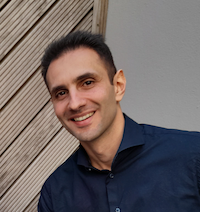 , Pantelis Tziveloglou is the Team Leader for the European Open Science Cloud at the Open Science and Research Infrastructures Unit of the European Commission’s Directorate-General for Research and Innovation. From 2015 until 2022 he held a post at the International Cooperation Directorate of the same Directorate-General, where he worked in the EU’s international research strategy and as a desk officer for scientific cooperation with Russia and Central Asia (2018-2019) and China (2019). Before joining the European Commission, he worked as a researcher in high-energy physics at Vrije Universiteit Brussel (2013-2015), École Polytechnique (2010-2013) and CERN (2007-2010). He holds a PhD in physics from Cornell University, USA. , European Commission, https://commission.europa.eu/index_en
, Pantelis Tziveloglou is the Team Leader for the European Open Science Cloud at the Open Science and Research Infrastructures Unit of the European Commission’s Directorate-General for Research and Innovation. From 2015 until 2022 he held a post at the International Cooperation Directorate of the same Directorate-General, where he worked in the EU’s international research strategy and as a desk officer for scientific cooperation with Russia and Central Asia (2018-2019) and China (2019). Before joining the European Commission, he worked as a researcher in high-energy physics at Vrije Universiteit Brussel (2013-2015), École Polytechnique (2010-2013) and CERN (2007-2010). He holds a PhD in physics from Cornell University, USA. , European Commission, https://commission.europa.eu/index_en - Dina Petranovic, Chief Scientific Officer & Chief Partnership Officer, Novo Nordisk Foundation Center for Biosustainability, , Technical University of Denmark
- Felix Reda, Director of Developer Policy, GitHub,
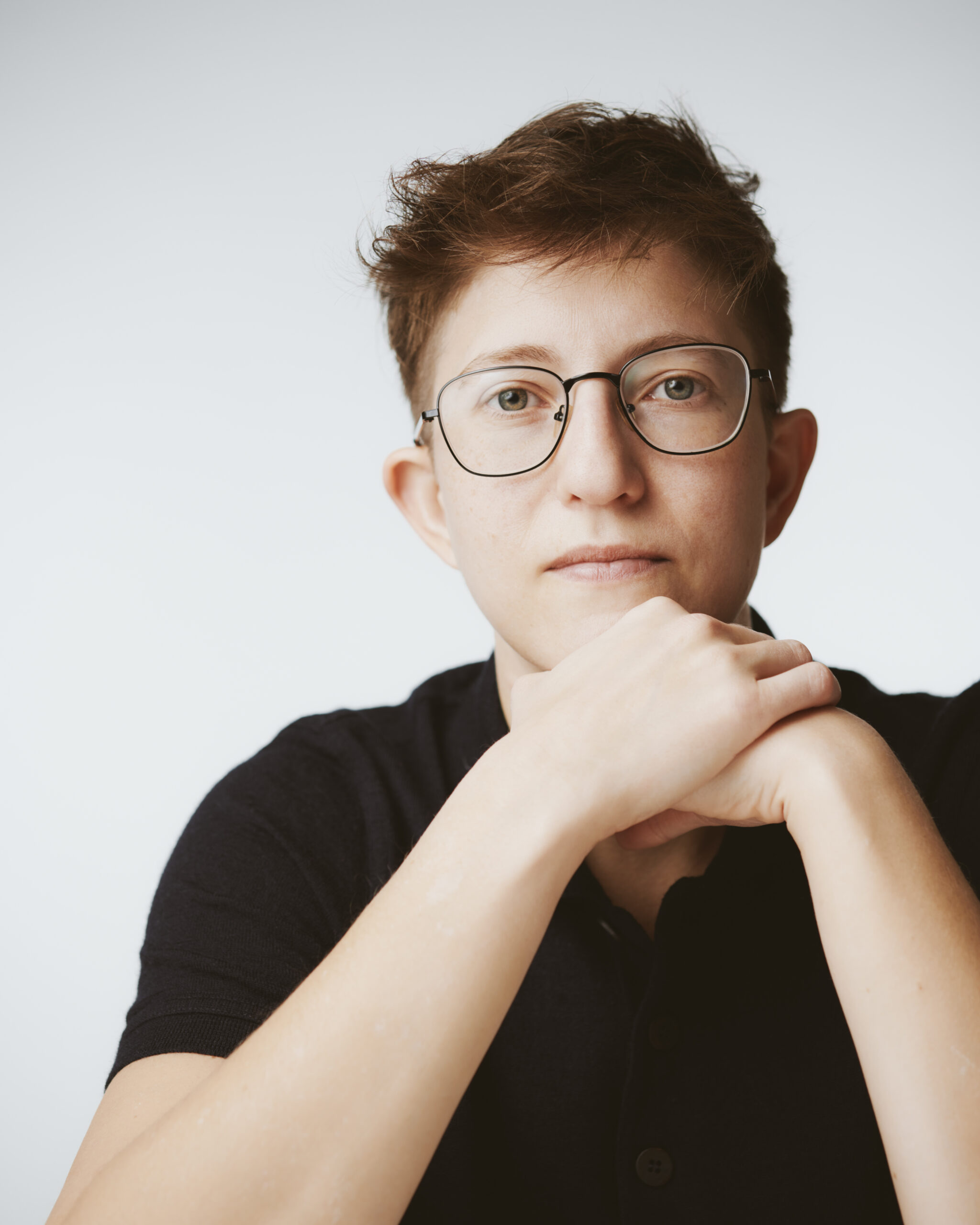 , Felix Reda (he/they) is Director of Developer Policy at GitHub. He has been shaping digital policy for over ten years, including serving as a Member of the European Parliament from 2014 to 2019. His areas of interest encompass copyright, freedom of expression, and the sustainability of the open-source ecosystem. Felix serves on the board of the Open Knowledge Foundation Germany and Gesellschaft für Freiheitsrechte (GFF). He holds an M.A. in Political Science and Communications Science from the University of Mainz, Germany. , GitHub
, Felix Reda (he/they) is Director of Developer Policy at GitHub. He has been shaping digital policy for over ten years, including serving as a Member of the European Parliament from 2014 to 2019. His areas of interest encompass copyright, freedom of expression, and the sustainability of the open-source ecosystem. Felix serves on the board of the Open Knowledge Foundation Germany and Gesellschaft für Freiheitsrechte (GFF). He holds an M.A. in Political Science and Communications Science from the University of Mainz, Germany. , GitHub - Yusuf Baran, Rector, Izmir Institute of Technology, Science Diplomat,
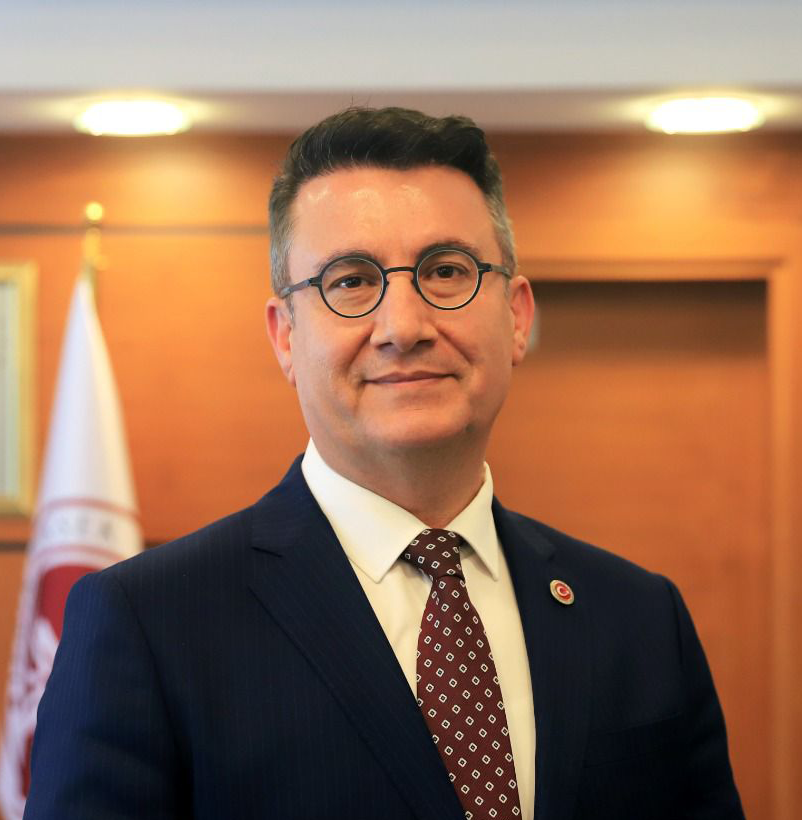 , Prof. Dr. Yusuf Baran is the Rector of Izmir Institute of Technology and Chair of Izmir Technology Development Zone. A molecular biologist with a Ph.D. from METU and NATO research experience in the U.S., he has led over 40 projects and published 500+ works. He has delivered 700+ talks globally and served on high-level platforms including the UN and G20. A recipient of 100+ awards, including the TWAS Science Diplomacy Award, he has held leadership roles in GYA and TWAS. His work focuses on science diplomacy, R&D policy, and innovation ecosystems. He also serves on Türkiye’s Interuniversity Board and IT Valley. , Izmir Institute of Technology, https://iyte.edu.tr/, Türkiye
, Prof. Dr. Yusuf Baran is the Rector of Izmir Institute of Technology and Chair of Izmir Technology Development Zone. A molecular biologist with a Ph.D. from METU and NATO research experience in the U.S., he has led over 40 projects and published 500+ works. He has delivered 700+ talks globally and served on high-level platforms including the UN and G20. A recipient of 100+ awards, including the TWAS Science Diplomacy Award, he has held leadership roles in GYA and TWAS. His work focuses on science diplomacy, R&D policy, and innovation ecosystems. He also serves on Türkiye’s Interuniversity Board and IT Valley. , Izmir Institute of Technology, https://iyte.edu.tr/, Türkiye
What’s driving Open Science forward, and what’s holding it back? This invited panel brings together policy experts to unpack the major shifts, challenges, and opportunities shaping Open Science today. Join us for a lively discussion on aligning agendas, empowering institutions, and ensuring that Open Science policies are equitable, inclusive, and globally impactful.
- Plenary Session 3
-
- Ioanna Grypari,
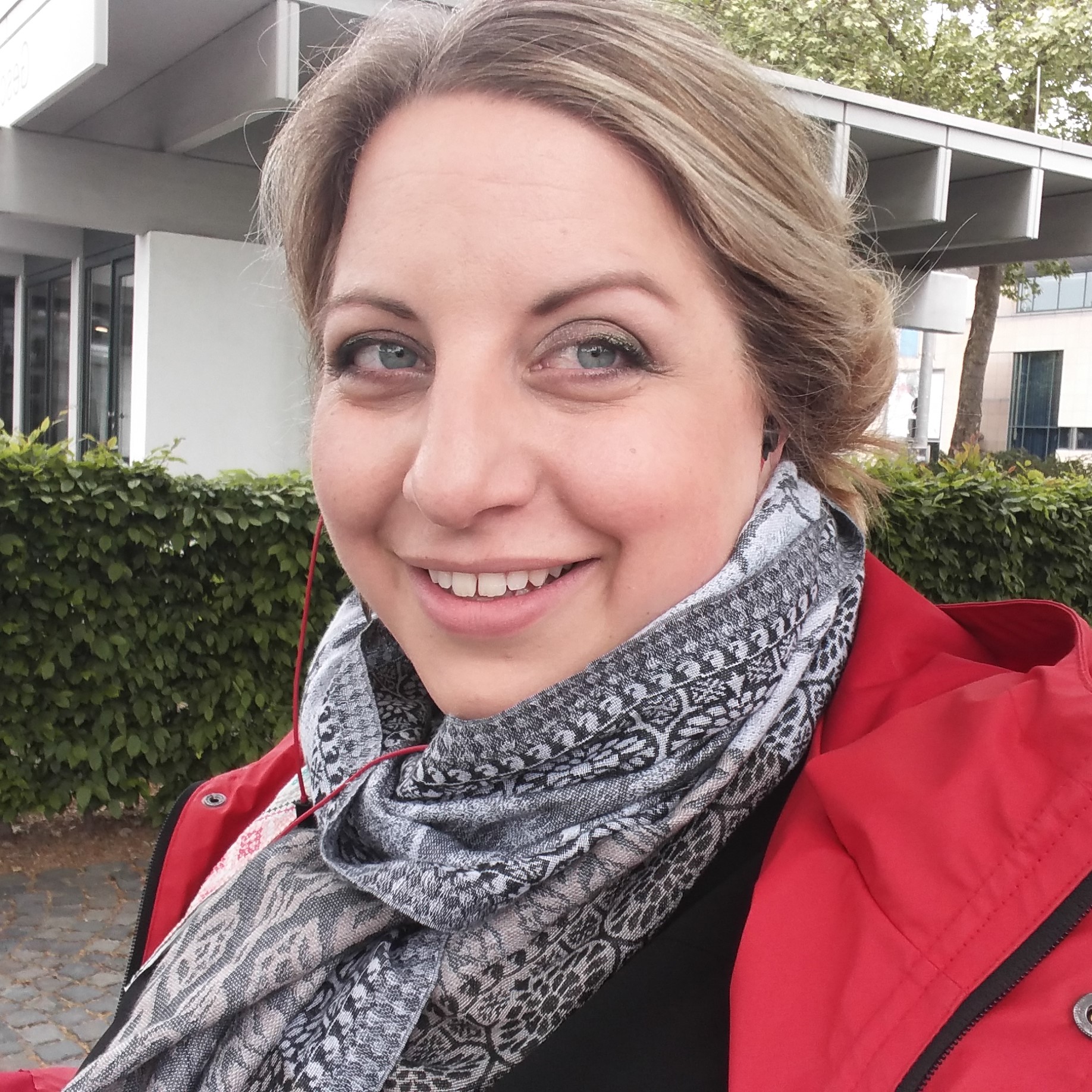 , OpenAIRE, Athena Research Center (ARC), Dr. Ioanna Grypari [F] is a technical project manager at OpenAIRE and Athena Research Center (ARC) in Greece, with a strong background in Econometrics. She leads cross-functional teams developing indicators and platforms for Open Science and Research & Innovation, using data analytics, large-scale databases, and AI workflows. She oversees OpenAIRE’s monitoring services and led the design and development of the Irish National Open Access Monitor and other national efforts. She coordinates the Horizon Europe project PathOS on the causal effects of Open Science. Ioanna holds degrees from Brown, LSE, and the University of Minnesota, and was previously a research economist at the Max Planck Institute.
, OpenAIRE, Athena Research Center (ARC), Dr. Ioanna Grypari [F] is a technical project manager at OpenAIRE and Athena Research Center (ARC) in Greece, with a strong background in Econometrics. She leads cross-functional teams developing indicators and platforms for Open Science and Research & Innovation, using data analytics, large-scale databases, and AI workflows. She oversees OpenAIRE’s monitoring services and led the design and development of the Irish National Open Access Monitor and other national efforts. She coordinates the Horizon Europe project PathOS on the causal effects of Open Science. Ioanna holds degrees from Brown, LSE, and the University of Minnesota, and was previously a research economist at the Max Planck Institute.
- 2025-09-16 09:00
- 09:00
- Room:
81/R-003A - Science Gateway Auditorium A
-
- Ana Persic, Programme Specialist for Science Technology and Innovation Policies and Open Science, UNESCO,
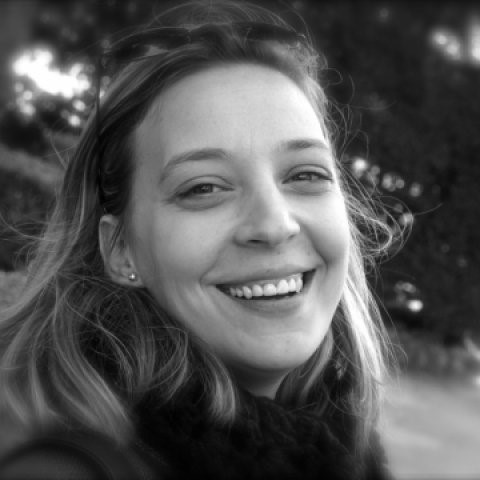 , Dr. Ana Persic is Programme Specialist for Science Technology and Innovation Policies and Open Science at the UNESCO Headquarters in Paris. Ecologist by training with a PhD in Ecotoxicology, Dr Ana Persic joined UNESCO in April 2006 in the framework of the UNESCO's Man and the Biosphere program within the Division of Ecological and Earth Sciences in Paris. She has then served as a Science Specialist at the UNESCO Liaison Office in New York from 2011-2018. Her work relates to strengthening the science-policy interface and promoting science, technology, and innovation in implementing the United Nations 2030 agenda for sustainable development and sustainable development goals (SDGs). She coordinated the development of the UNESCO Recommendation on Open Science and is currently working towards its implementation. , Scientific and Cultural Organization (UNESCO), https://www.unesco.org/en, France
, Dr. Ana Persic is Programme Specialist for Science Technology and Innovation Policies and Open Science at the UNESCO Headquarters in Paris. Ecologist by training with a PhD in Ecotoxicology, Dr Ana Persic joined UNESCO in April 2006 in the framework of the UNESCO's Man and the Biosphere program within the Division of Ecological and Earth Sciences in Paris. She has then served as a Science Specialist at the UNESCO Liaison Office in New York from 2011-2018. Her work relates to strengthening the science-policy interface and promoting science, technology, and innovation in implementing the United Nations 2030 agenda for sustainable development and sustainable development goals (SDGs). She coordinated the development of the UNESCO Recommendation on Open Science and is currently working towards its implementation. , Scientific and Cultural Organization (UNESCO), https://www.unesco.org/en, France - Kristi Holmes, Associate Dean for Knowledge Management and Strategy & Director of Galter Health Sciences Library, Northwestern University,
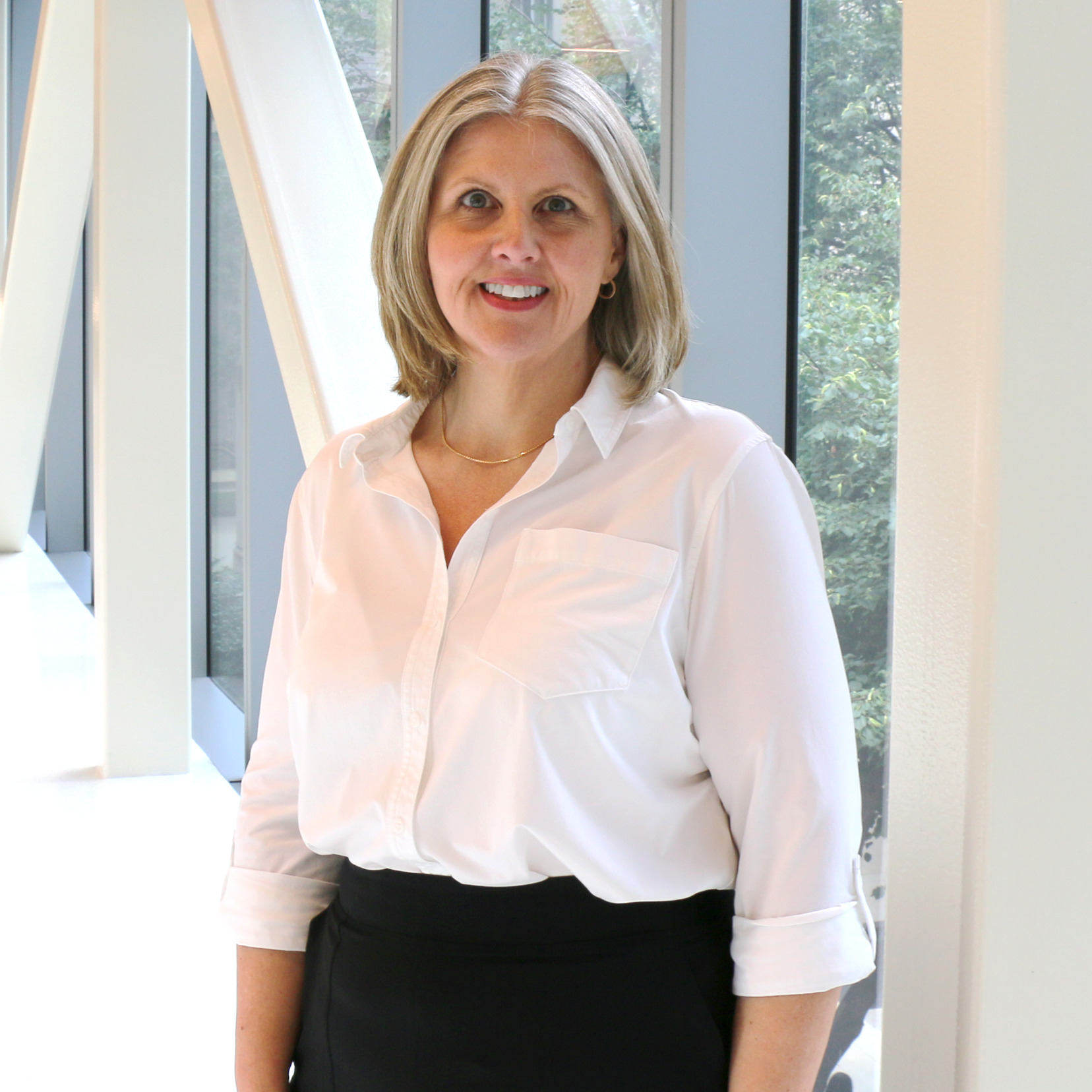 , Kristi Holmes is Associate Dean for Knowledge Management and Strategy, director of Galter Health Sciences Library, and professor of Preventive Medicine (Biostatistics and Informatics) at Northwestern University. Dr. Holmes serves as the Director of Informatics and Data Science at the Northwestern University Clinical and Translational Sciences Institute (NUCATS) and Chief of Knowledge Management in Northwestern’s Institute for Artificial Intelligence in Medicine. She leads evaluation for several programs, including the NNLM National Evaluation Center. Her work focuses on advancing discovery and access to knowledge through collaborative technical and social initiatives, including the role of repositories to advance FAIR practices and a vibrant sharing ecosystem. She and her team are enthusiastic contributors to the InvenioRDM community. , Northwestern University, https://www.northwestern.edu/
, Kristi Holmes is Associate Dean for Knowledge Management and Strategy, director of Galter Health Sciences Library, and professor of Preventive Medicine (Biostatistics and Informatics) at Northwestern University. Dr. Holmes serves as the Director of Informatics and Data Science at the Northwestern University Clinical and Translational Sciences Institute (NUCATS) and Chief of Knowledge Management in Northwestern’s Institute for Artificial Intelligence in Medicine. She leads evaluation for several programs, including the NNLM National Evaluation Center. Her work focuses on advancing discovery and access to knowledge through collaborative technical and social initiatives, including the role of repositories to advance FAIR practices and a vibrant sharing ecosystem. She and her team are enthusiastic contributors to the InvenioRDM community. , Northwestern University, https://www.northwestern.edu/ - Roberto di Cosmo, Director of Software Heritage,
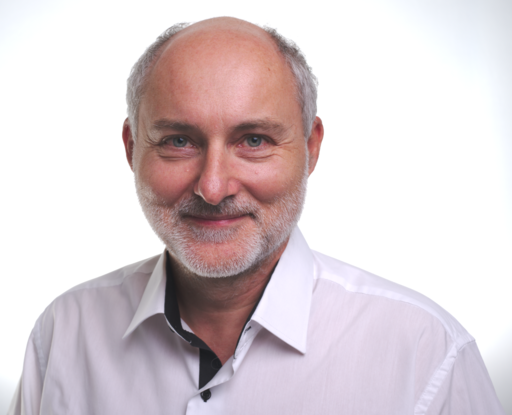 , Roberto Di Cosmo is Full Professor of Computer Science at Université Paris Cité, now on leave at Inria. A long-time Free Software advocate, he directed the Systematic cluster’s FOSS thematic group— contributing to funding over 50 collaborative open source R&D projects. He chairs the Software Chapter of France’s National Committee for Open Science and is director of Software Heritage, the UNESCO-backed universal archive of all publicly available source code that he founded in 2015 with support from Inria. , Software Heritage Foundation, https://www.softwareheritage.org/
, Roberto Di Cosmo is Full Professor of Computer Science at Université Paris Cité, now on leave at Inria. A long-time Free Software advocate, he directed the Systematic cluster’s FOSS thematic group— contributing to funding over 50 collaborative open source R&D projects. He chairs the Software Chapter of France’s National Committee for Open Science and is director of Software Heritage, the UNESCO-backed universal archive of all publicly available source code that he founded in 2015 with support from Inria. , Software Heritage Foundation, https://www.softwareheritage.org/ - Susan Reilly, Director of the Irish Research e-Library (IReL),
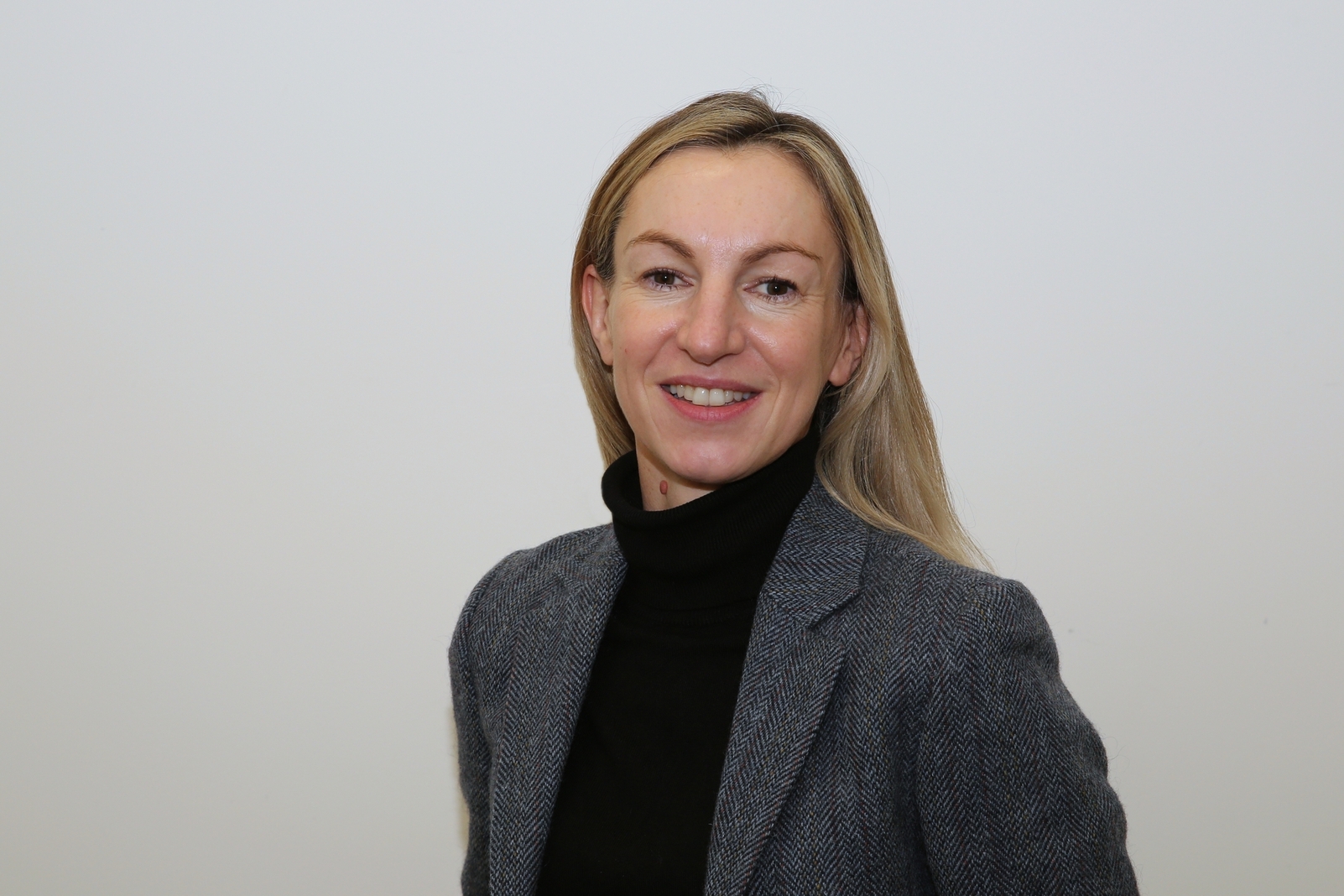 , Susan Reilly became the Director of the Irish Research e-Library (IReL) in 2022. Prior to this she worked as part of UCD Library’s Executive team. Susan has spent most of her career working in and with research libraries on emerging issues and services such as digital libraries, open research and research data management. She co-chairs the LIBER Copyright Working Group, is a member of the IFLA Open Science Steering Committee, and is on the Policy Committee of Knowledge Rights 21. , Maynooth University, https://www.maynoothuniversity.ie/
, Susan Reilly became the Director of the Irish Research e-Library (IReL) in 2022. Prior to this she worked as part of UCD Library’s Executive team. Susan has spent most of her career working in and with research libraries on emerging issues and services such as digital libraries, open research and research data management. She co-chairs the LIBER Copyright Working Group, is a member of the IFLA Open Science Steering Committee, and is on the Policy Committee of Knowledge Rights 21. , Maynooth University, https://www.maynoothuniversity.ie/ - Zoé Ancion, Head of Open Science Unit at the French National Research Agency,
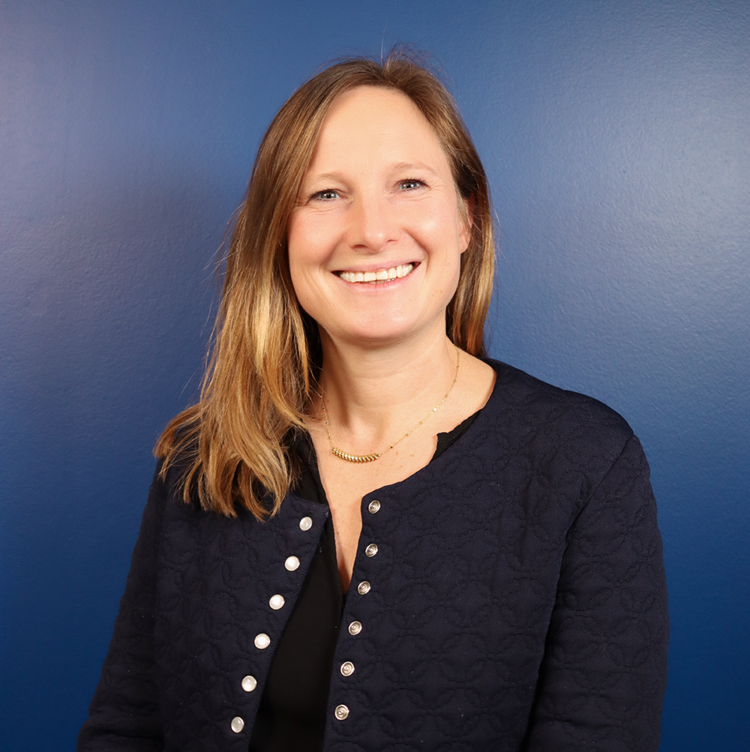 , Zoé Ancion is the Head of the Open Science Unit at the French National Research Agency (ANR). In this role, she is responsible for developing and implementing the ANR’s Open Science commitments, ensuring that research funded by ANR adheres to the highest standards of openness and transparency. Her work focuses on fostering a culture of open science within the French research community and beyond. Zoé Ancion also coordinates the open science network of French funding agencies, promoting collaboration and alignment on open science policies and practices. She represents ANR in various national and international networks, including the French Committee for Open Science, the Science Europe Working Group on Open Science, cOAlition S, the Coalition for Advancing Research Assessment (CoARA), and the Barcelona Declaration. , French National Research Agency (ANR), https://anr.fr/en/
, Zoé Ancion is the Head of the Open Science Unit at the French National Research Agency (ANR). In this role, she is responsible for developing and implementing the ANR’s Open Science commitments, ensuring that research funded by ANR adheres to the highest standards of openness and transparency. Her work focuses on fostering a culture of open science within the French research community and beyond. Zoé Ancion also coordinates the open science network of French funding agencies, promoting collaboration and alignment on open science policies and practices. She represents ANR in various national and international networks, including the French Committee for Open Science, the Science Europe Working Group on Open Science, cOAlition S, the Coalition for Advancing Research Assessment (CoARA), and the Barcelona Declaration. , French National Research Agency (ANR), https://anr.fr/en/
Tracking the Impact of Open Science: Are We Measuring What Matters?
This panel brings together experts to explore how we assess the real-world effects of Open Science. What metrics reflect meaningful change? How can we monitor progress without losing sight of equity and inclusivity? Join us for a dynamic session that will surface tensions, trade-offs, and fresh ideas on moving from compliance metrics toward meaningful evidence of Open Science’s value and impact.
 , Co-coordinator of OPERAS Research Infrastructure, OPERAS, Pierre Mounier is co-coordinator of OPERAS Research Infrastructure with Suzanne Dumouchel. He supports cooperation between OPERAS members and contributes to the strategic roadmap of the infrastructure. He is trained in classical studies and social anthropology. Pierre is affiliated to the École des Hautes Études en Sciences Sociales (EHESS); head of the international sector of OpenEdition, the French national infrastructure dedicated to open scholarly communication in the SSH, and co-director of the Directory of Open Access Books (DOAB) with Niels Stern. He regularly publishes on digital humanities and open science topics, and more largely on the social and political impact of Information and Communication Technology (ICT)
, Co-coordinator of OPERAS Research Infrastructure, OPERAS, Pierre Mounier is co-coordinator of OPERAS Research Infrastructure with Suzanne Dumouchel. He supports cooperation between OPERAS members and contributes to the strategic roadmap of the infrastructure. He is trained in classical studies and social anthropology. Pierre is affiliated to the École des Hautes Études en Sciences Sociales (EHESS); head of the international sector of OpenEdition, the French national infrastructure dedicated to open scholarly communication in the SSH, and co-director of the Directory of Open Access Books (DOAB) with Niels Stern. He regularly publishes on digital humanities and open science topics, and more largely on the social and political impact of Information and Communication Technology (ICT)  , Alexander Kohls is the head of the CERN Scientific Information Service. In this role, he spearheads numerous organisational efforts in open science and scholarly communication, alongside overseeing the CERN Library and Archives. Previously an executive in the financial sector, he now promotes global initiatives like SCOAP3, advocating for open access to scientific research and encouraging international collaboration. Alex holds a degree in business administration and joined CERN in 2014. , European Organization for Nuclear Research (CERN), https://home.cern/, Switzerland
, Alexander Kohls is the head of the CERN Scientific Information Service. In this role, he spearheads numerous organisational efforts in open science and scholarly communication, alongside overseeing the CERN Library and Archives. Previously an executive in the financial sector, he now promotes global initiatives like SCOAP3, advocating for open access to scientific research and encouraging international collaboration. Alex holds a degree in business administration and joined CERN in 2014. , European Organization for Nuclear Research (CERN), https://home.cern/, Switzerland , Juan Pablo Alperin is the Scientific Director of the Public Knowledge Project (PKP), Associate Professor in the Publishing Program, and the Co-Director of the Scholarly Communications Lab (ScholCommLab) at Simon Fraser University. Dr. Alperin is an established researcher of scholarly communications, known for bringing evidence-based perspectives to pragmatic solutions in support of open access and open science. , Public Knowledge Project, Simon Fraser University, https://pkp.sfu.ca/
, Juan Pablo Alperin is the Scientific Director of the Public Knowledge Project (PKP), Associate Professor in the Publishing Program, and the Co-Director of the Scholarly Communications Lab (ScholCommLab) at Simon Fraser University. Dr. Alperin is an established researcher of scholarly communications, known for bringing evidence-based perspectives to pragmatic solutions in support of open access and open science. , Public Knowledge Project, Simon Fraser University, https://pkp.sfu.ca/ , Katharina Rieck works as Open Science Manager at the Austrian Science Fund (FWF). In this role, she is responsible for the strategic development and implementation of the FWF's Open Science agenda. She coordinates funding programs to support open access publications and infrastructures and is responsible for the FWF's research data management strategy. She represents the FWF in several national and international bodies such as Science Europe Working Groups, Crossref Board of Directors, CoARA and the Steering Board of Open Science Austria (OSA). , Austrian Science Fund (FWF), https://www.fwf.ac.at/en/, Austria
, Katharina Rieck works as Open Science Manager at the Austrian Science Fund (FWF). In this role, she is responsible for the strategic development and implementation of the FWF's Open Science agenda. She coordinates funding programs to support open access publications and infrastructures and is responsible for the FWF's research data management strategy. She represents the FWF in several national and international bodies such as Science Europe Working Groups, Crossref Board of Directors, CoARA and the Steering Board of Open Science Austria (OSA). , Austrian Science Fund (FWF), https://www.fwf.ac.at/en/, Austria , Victoria Tsoukala is a Policy Officer in the European Commission, Directorate General for Research & Innovation. She works on the development, implementation, monitoring and evaluation of policies in open science and scholarly communication, and especially on R&I FP policy and policy development with Member States of the EU. She holds a PhD in Classical and Near Eastern Archaeology from Bryn Mawr College (PA, USA). , European Commission, https://commission.europa.eu/index_en
, Victoria Tsoukala is a Policy Officer in the European Commission, Directorate General for Research & Innovation. She works on the development, implementation, monitoring and evaluation of policies in open science and scholarly communication, and especially on R&I FP policy and policy development with Member States of the EU. She holds a PhD in Classical and Near Eastern Archaeology from Bryn Mawr College (PA, USA). , European Commission, https://commission.europa.eu/index_en












